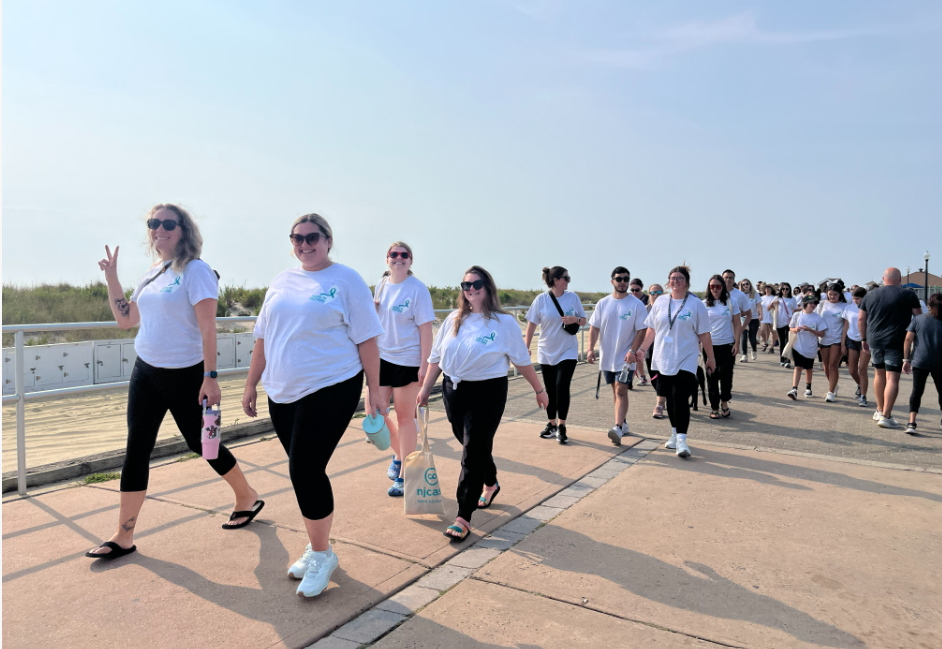On July 2, 2025, a New York federal jury acquitted Sean “P. Diddy” Combs of the major charges of racketeering conspiracy and sex trafficking yet convicted him on two counts of transportation for prostitution, each carrying up to a decade in prison (Associated Press). This verdict has reverberated far beyond the courtroom, striking a profound blow to survivors of sexual violence, whose trauma is too often minimized when power and celebrity collide. Outside the courthouse, some jeered and doused each other in baby oil, thus reframing allegations of manipulation, coercion, and violence as nothing more than “kinky fun.” But this dismissive narrative of “since when is it a crime to be freaky,” not only strips survivors of their humanity, it actively gaslights them and redirects the conversation to discredit the anti–sexual violence movement itself. It deliberately ignores and masks the central issue that what was so egregiously missing here was meaningful consent. As survivors well know, kink is not a shield against abuse, consent is.
A widely circulated video from 2016 shows Combs physically assaulting Cassie Ventura in a hotel hallway. Additionally, Cassie’s testimony detailed a decade of drug-fueled “freak‑offs” (erotic, party‑like group sex events), repeated beatings, threats to expose intimate footage, and career sabotage. These are not the hallmarks of consensual exploration or sexual play; they are tactics of coercion. As Audre Lorde reminds us, “The erotic is a measure between the beginnings of our sense of self and the chaos of our strongest feelings” (Lorde). According to Lorde, the erotic represents a deep resource of self‑worth and liberation. It is a source of personal and collective empowerment that affirms our deepest capacity to feel and connect. But when consent is compromised and this power becomes weaponized, eroticism or freakiness (as in the case of the “Diddy Trial”) turns into trauma. And the problem is that coercion shatters this sense of self-worth and liberation. True kink practitioners uphold and protect consent as the first rule of sexual engagement. When the public defends Sean Combs as “just being kinky,” they ignore that true erotic consent requires ongoing negotiation, conscious engagement, and mutual respect. Lorde’s stark reminder that “use without consent of the [person being] used is abuse” resonates painfully in this case (Lorde).
Critics argue that Cassie’s active role of organizing “freak‑offs,” managing logistics, and hiring and paying sex workers highlights her agency and proves she was a willing participant. But that interpretation overlooks how coercive control actually distorts agency. Under the weight of financial extortion, grooming, career threats, drugging, and violence, such participation becomes a survival mechanism, not genuine consent. Research on coercive control and phenomena like the sunk‑cost fallacy (i.e. the cognitive bias where people persist in a failing situation because they’ve already invested so much [Pilat et al]) shows that those subjected to duress and sustained manipulation often continue in harmful situations long past the point they would have otherwise walked away simply because so much is already at stake (Ducharme). This framework unmasks why external gestures like Cassie’s facilitation, presence, or logistics work don’t equate to genuine autonomy. In other words: apparent agency isn’t proof of autonomy.
This trial represents a recurring pattern where powerful individuals escape full accountability despite substantial evidence. The public’s mocking response shines a light on “rape culture” and the systemic normalization of intimate partner violence that defers to wealth and fame. The New Jersey Coalition Against Sexual Assault (NJCASA) urges sustained resistance, not just outrage. Intersectionality scholar Kimberlé Crenshaw teaches us that, too often, Black women’s trauma is dismissed at the crossroads of sexism, racism, and economic subjugation, cautioning that “intersectionality was a prism to bring to light dynamics within discrimination law that weren’t being appreciated by the courts” (Cifuentes and Crenshaw). Framing Cassie’s experience as mere kink erases this structural lens and perpetuates longstanding patterns of disbelief and invisibility.
That said, there’s more to be reclaimed here than justice. It’s possible to reimagine erotic and sexual liberation on ethical, anti-violent terms. bell hooks argues, powerfully, that adopting a love ethic, i.e. one rooted in “care, commitment, trust, responsibility, respect, and knowledge,” is essential to dismantling domination in all forms, even within intimacy (hooks). This ethic demands sustained accountability and the acknowledgement that the freedom to explore desire must never exist at the expense of another’s autonomy. Because whether in a relationship, a casual encounter, or a so-called “freak off,” the fundamental expectation must be one of mutual care and accountability, even and especially when power dynamics are unequal.
Once again, Audre Lorde’s wisdom rings true here. Her words, “Your silence will not protect you,” (Lorde) echo through this case not as an indictment to survivors but as a rallying cry. Too often, survivors are pressured into silence by threats, shame, or the cultural impulse to protect powerful men at the expense of the vulnerable. To break that silence, and to build spaces where survivors are met with tenderness rather than ridicule, is a radical act of justice. This isn’t about policing desire or limiting sexual freedom. Rather, it is about cultivating a culture where everyone is honored as worthy of safety, agency, and respect. Upholding these ethics is an act of collective compassion. It ensures that our pursuits of pleasure or connection do not become vehicles for exploitation but instead are grounded in profound responsibility to one another’s humanity (Lorde).
If we’re serious about sexual justice, we must reclaim the erotic and love as forces that don’t perpetuate oppression but that dismantle it. The verdict of Sean “P. Diddy” Combs isn’t just a legal judgment, it’s a cultural reckoning. By dismissing coercion as quirky kink, we perpetuate a global system that commodifies bodies, silences survivors, and excuses abusers. NJCASA stands for a world where sexual freedom and justice are inseparable, where survivors are believed and supported, and where intimacy is never divorced from accountability and care.
Works Cited
Associated Press “Sean ‘Diddy’ Combs is denied bail after mixed verdict clears him of top charges in sex crimes case.” NBC New York, 2 July 2025. https://apnews.com/article/sean-combs-diddy-trial-jury-deliberations-a9358ff8917e96874f027872e07cd9a5
Cifuentes, Nolwen, and Kimberlé Crenshaw. Interview. “’Intersectionality Was a Prism to Bring to Light Dynamics within Discrimination Law That Weren’t Being Appreciated by the Courts.’” Vox, 20 May 2019, https://www.vox.com/the-highlight/2019/5/20/18542843/intersectionality-conservatism-law-race-gender-discrimination
Ducharme, Jamie. “The Sunk Cost Fallacy Is Ruining Your Decisions. Here’s How.” Time, 26 July 2018. https://time.com/5347133/sunk-cost-fallacy-decisions/
hooks, bell. All About Love: New Visions. HarperCollins, 2000.
Lorde, Audre. Sister Outsider: Essays and Speeches. Crossing Press, 2012.
Pilat, Dan, et al. “The Sunk Cost Fallacy.” The Decision Lab, 23 July 2015, thedecisionlab.com/biases/the-sunk-cost-fallacy






